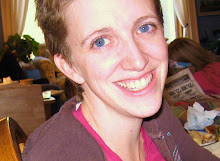Last week I got together with seven other moms from Cora's preschool. Although my daughter left the preschool eight months ago, the other moms and I still regularly communicate. We are still using the Yahoo groups listserv to send messages to all the families involved last year. Many of us are also Facebook friends. If your children go to a traditional school, this may sound strange to you. I didn't really understand how different co-op preschools were until I overheard some moms talking outside our children's kindergarten room. One asked the other who her child was. A few moments later they realized they had been in the same preschool class the previous year. For me to not recognize a parent from Cora's preschool I would have to be unconscious. In the course of one short year we became extended family. These other moms became my sisters.
How did it happen? The co-op preschool model is unique in that, in exchange for the parent's time and effort, we get some of the best preschool education around. Plus, the tuition is incredibly cheap. Parents must stay with their child at school one day each week. During that stay they man a station and help the kids in that area. They must also fulfill a "job" such a treasurer, or secretary. They attend required monthly meetings in which a parent educator paid by the sponsoring college or university teaches them about (surprise!) parenting. The school's business is also done at these meetings.
As we all know, parenting is a difficult business. The support I received from the co-op families last year was better than therapy. Seeing other moms and dads going through the exact same issues was so comforting. Over the course of the year, many struggles brought us closer. One mom went through a nasty divorce. Another lost her father. Triumphs like the births of two babies gave us cause to celebrate. Because we all depend on each other to make the co-op work, any issue like this always meant we had to pull together to bridge the gap. We gave rides, babysat, covered each-other's school duties and cooked meals. We supported our fantastic teacher, Lauren, and in return she gave our children a loving, nurturing environment.
Even though our children are at nine different schools this year, our history with the kids makes us still feel close. At drinks last week we laughed and laughed, commiserating over the new year's struggles, celebrating each child's latest triumph. Looking back, I couldn't imagine a better way to take my children (or myself) through the preschool years.
Making Repairs
16 hours ago
